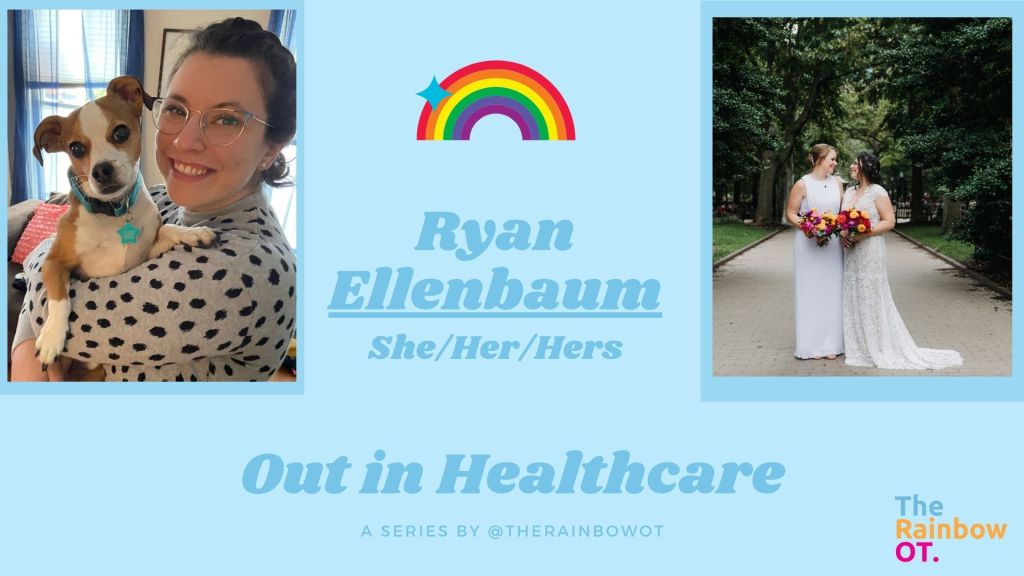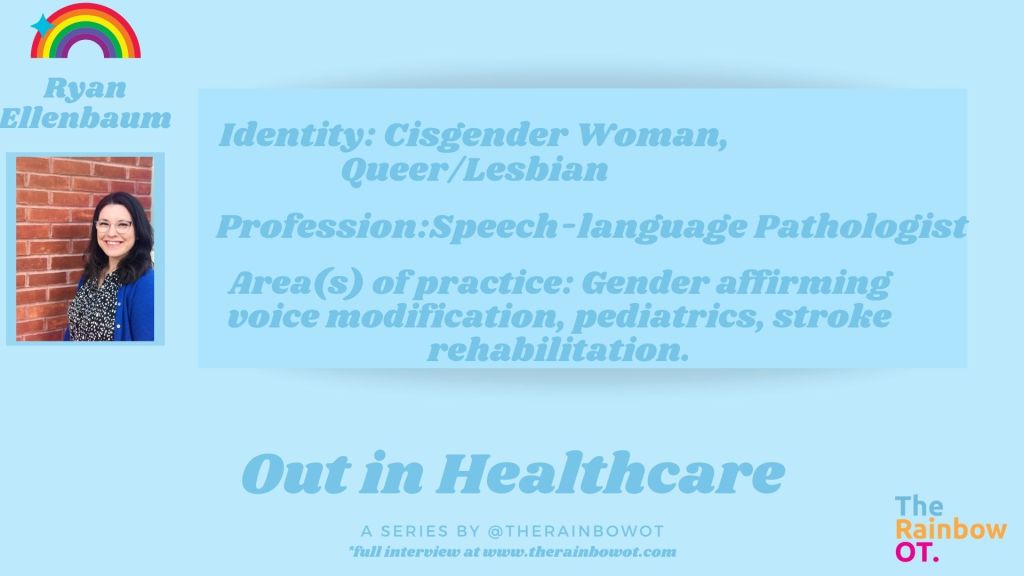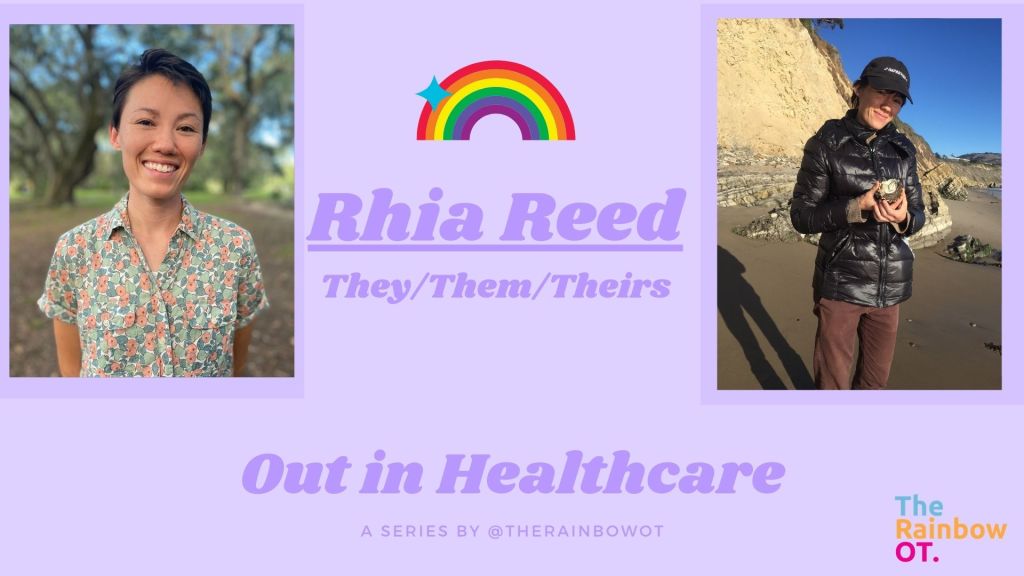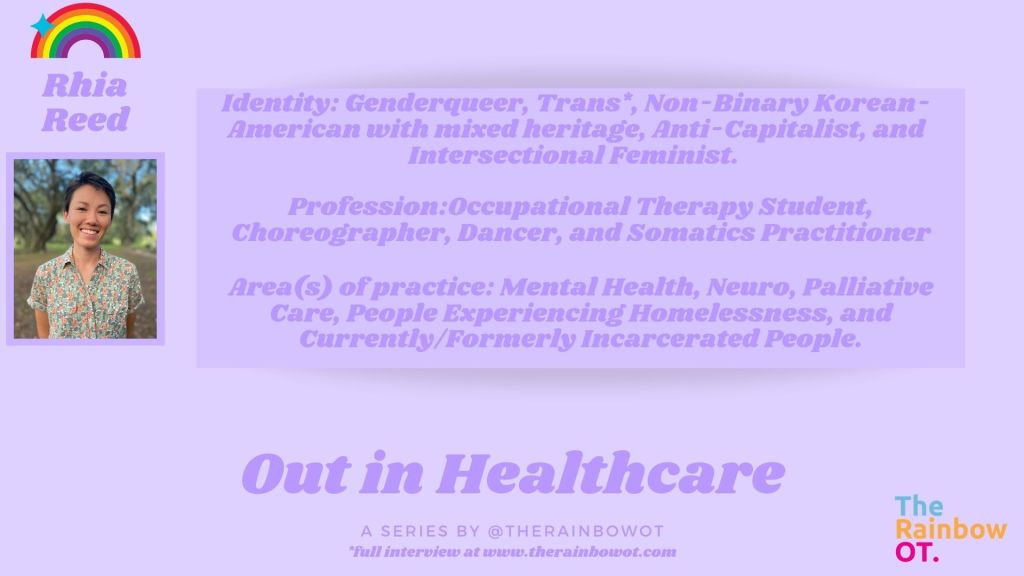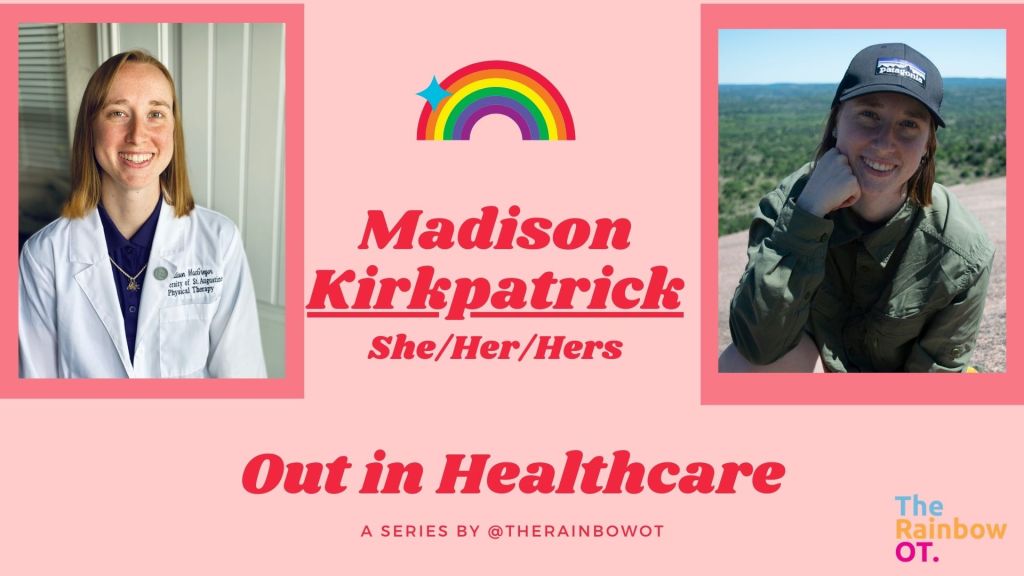
Name: Madison Kirkpatrick
Pronouns: She/Her/Hers
Identity: Pansexual and asexual cisgender female
Background: I was born and raised in Eureka, CA. I grew up in an extremely conservative household that made me feel unsafe and forced me to repress my emotions and my identity. I completed my B.S. in Kinesiology: Pre-Physical Therapy with a Health Education minor in three years and then earned my M.S. in Kinesiology: Exercise Science in one year, after which I published my thesis research. I was accepted into the Doctor of Physical Therapy program at the University of St. Augustine for Health Sciences- Austin, TX campus. I will graduate with my DPT at the end of November 2020. I met my now wife during my M.S. and we got married in 2019. In my free time I enjoy spending time outdoors with my wife and our two puppies.
Profession: Physical Therapist
Area(s) of Practice or Interest: Pelvic floor PT with an emphasis on the LGBTQ+ population and outpatient orthopedics so I can treat other types of impairments beyond the pelvic floor.
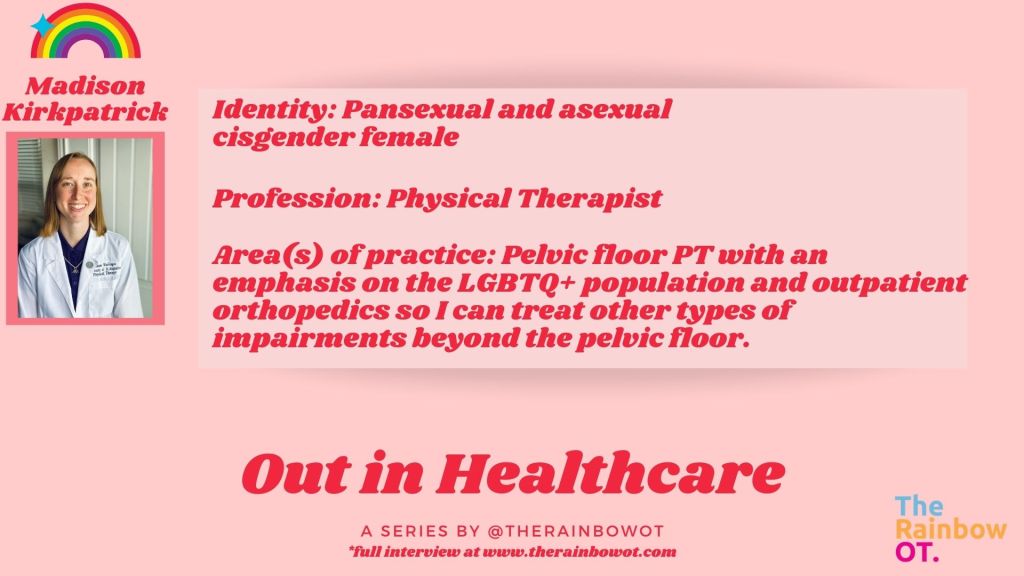
What does being ‘Out in Healthcare’ mean to you?: Being out in healthcare means being visible to others so the future generations have the representation I did not have growing up, and it means fighting for health equity, justice, and healthcare inclusion for all marginalized communities. As someone that understands what it is like to have to deal with healthcare disparities simply based on my identity, being out in healthcare is taking on the system full force to improve the lives of my community and the lives of all marginalized communities.
What is one thing everyone should know about your identity?: I don’t like labeling my identity. I label my identity for the people that “have” to know. I am asexual, an identity that doesn’t get a lot of attention, and where I am on the asexual scale personally is that I have never been attracted to anyone I have ever met other than my wife. I am theoretically attracted to all identities of humans, hence why I use pansexual, but in reality, my asexual identity and my lack of interest in the labels another person uses are more who I am at my core (I respect everyone’s labels, but that doesn’t influence whether I am attracted to them or not).
How do you feel when your identity is included?: I feel seen and respected when my identity is included. I feel like my identity is as valuable as the heterosexual identity has been systematically respected historically.
What does “taking up space” mean to you?: Taking up space means taking ownership of the space that has historically given to heterosexual people but denied to members of the LGBTQ+ community. It means demanding that my identity and needs get as much attention as anyone else and it means fighting for more and more space for those that come after me. It is advocacy, it is radical, and it is vital to equity and justice for the LGBTQ+ community.
What is one piece of advice that you would give to healthcare workers who aren’t sure how to honor the identities of their patients?: Put the work in to find the answers to the questions they have about how to honor the identities of their patients. It is not the job of a marginalized community to educate the majority, but there are a number of people from marginalized communities that do fill the role of educator and their resources are plenty and widespread. All it takes is a little Google searching and/or social media perusing. Once they have answers to their questions, it is time to put in the work and put those answers into action. Once the action is being taken guess what? It’s time for more work. It is time to continue to learn and grow, and it is time to teach others and fight for the rights of their patients. The work never stops.
Has your identity influenced healthcare that you’ve received?: My identity has caused me to deal with subpar care from my primary care provider who asked me about my sexual activity and then spent a lot of time asking if I could be pregnant (multiple questions about this, to which I answered no every time), didn’t ask me if I was using protection, and then was shocked when I told him I was in a relationship with a woman, which I only told him because he wouldn’t stop grilling me about pregnancy. The visit was really uncomfortable after that, and it felt like he was rushing to get my visit done as quickly as possible. Ultimately, I was not educated on STIs, asked if I felt safe in my relationship (thankfully my wife isn’t an abusive person), or anything else that would normally be routine.
Where can people find you?: I am on Instagram @lgbtqphysicaltherapists and my email is lgbtqphysicaltherapists@gmail.com.

